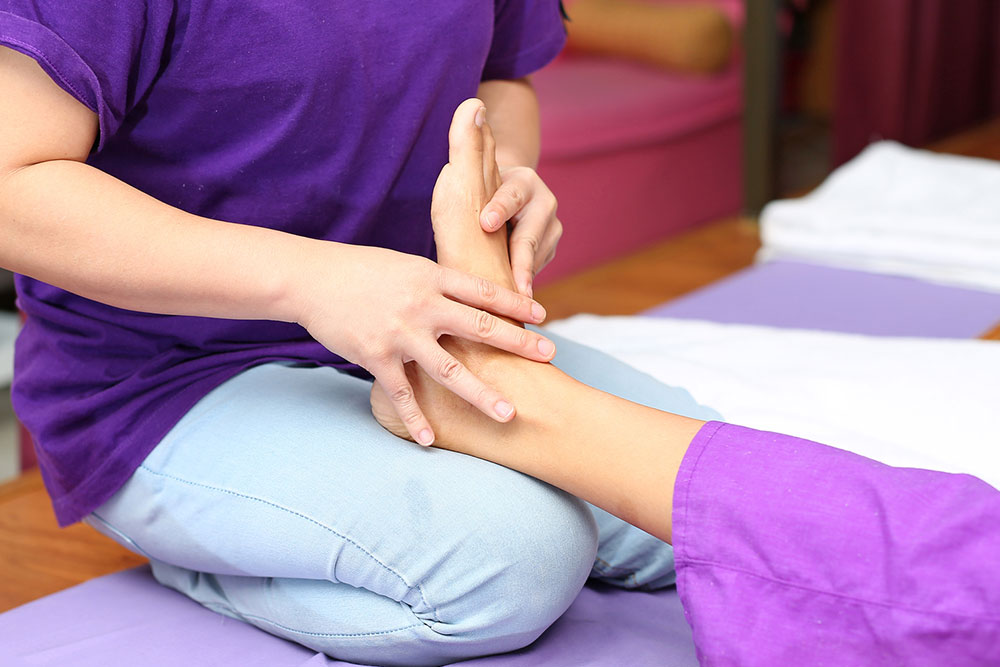Best Treatment Options to Consider for Neuropathy
The human body has a peripheral nervous system that connects the nerves from the brain and the spinal cord with the rest of the body. They are connected everywhere including hands, legs, mouth, face, and internal organs. These nerves deliver signals of physical sensation back to the brain. Neuropathy or peripheral neuropathy refers to a disorder that occurs due to the malfunctioning of the nerves. If they get damaged or destroyed, they send wrong signals, like signals of pain when there is no pain and no signal when there is a pain.

Types and symptoms of neuropathy
There are around 100 different types of neuropathy. Each of them has unique symptoms as well as treatments. They are classified into two types based on the type of nerve damage involved. The three types of peripheral nerves are sensory nerves that connect with the skin, motor nerves with muscles and autonomic nerves with the internal organs. Peripheral neuropathy affects one or all nerve groups. Mononeuropathy is the condition of one damaged nerve; on the other hand, multiple nerves are damaged during polyneuropathies which are more common. Various symptoms can be noticed like tingling and numbness in hands and feet, sharp stabbing pain, buzzing sensation, drop of blood pressure, sexual dysfunction, thinning of skin, diarrhea, and difficulty in digestion, constipation, and excessive sweating. When you go to the doctor, make sure to tell him about all the symptoms to get proper treatment.
Diagnosis
In order to determine the required treatment, it is important to diagnose the causes behind the disorder. For that, certain measures are taken:
- Full medical history: The doctor reviews the patient’s medical history including symptoms, lifestyle, drinking habits, exposure to toxins, and family history of neurological diseases.
- Neurological examination: With these tests, doctors check the patient’s tendon reflexes, muscle strength, ability to feel certain sensations, and also posture and coordination.
- Blood tests: Diabetes, abnormal immune function, vitamin deficiencies, and other conditions that cause peripheral neuropathy are detected with blood tests.
- Imaging tests: These are CT and MRI scans. They are done to inspect if there are any herniated disks or tumor.
- Nerve function tests: By using a probe, electrical signals are sent to a nerve to detect nerve damage. It also includes sweat test and sensory test.
- Skin biopsy: A small portion of the skin is removed to detect any reduction in nerve endings.
Treatment
The fundamental aim of neuropathy treatment is to relieve the symptoms after detecting the causes. It is suggested to be under the watch of your doctor when the treatment procedures are being taken to see if you are improving or not.
Medications do help in curing neuropathy, but it is always wise to avoid medications as they bring side effects as well as addiction to them. There are various other ways of neuropathy treatment that are mentioned below.
Therapies
- Transcutaneous electrical nerve stimulation (TENS): Applied for a month for 30 minutes daily, electrodes are placed on the skin to deliver a gentle electric current.
- Plasma exchange and intravenous immune globulin: These procedures help people with their inflammatory conditions. In this therapy, blood is removed and it is returned to the body again after freeing it from antibodies and other proteins. Instead, the patient receives high-level proteins working as antibodies.
- Physical therapy: This therapy helps people who have muscle weakness by improving their movements. Wheelchair, walker, cane or foot braces are also used.
- Surgery: Surgery is usually advised for people whose neuropathies are caused by pressure on nerves or from tumors.
Alternative treatment
- Acupuncture: Thin needles are inserted in various points on the patient’s body to reduce peripheral neuropathy. Multiple sessions are required for improvement.
- Herbs: Herbs like evening primrose oil help to reduce neuropathy pain of diabetic patients. It is recommended to consult a doctor before considering herbs.
- Amino acids: Amino acids help diabetic people as well as people who have undergone chemotherapy. It may have some side effects.
Lifestyle and home remedies
There are some things that you must do at home to help with neuropathy treatment. They are:
- You must take care of your feet. You can use soft, loose cotton socks, padded shoes and semicircular hoop for sensitive feet.
- Regular exercise like walking helps to reduce pain and improves muscle strength. It also controls the blood sugar level. Yoga and tai chi are also helpful.
- Smoking causes so many neuropathy complications so it is best to quit it. Avoid alcohol too.
- Eat lots of vegetables and fruits for vitamins and minerals. Protein is equally important.
- Monitor the blood glucose level to keep it under control.
Different neuropathy treatment options work on different people. They are helpful but they need to be accurate. Therefore, you are always advised to consult your doctor as soon as you experience symptoms.